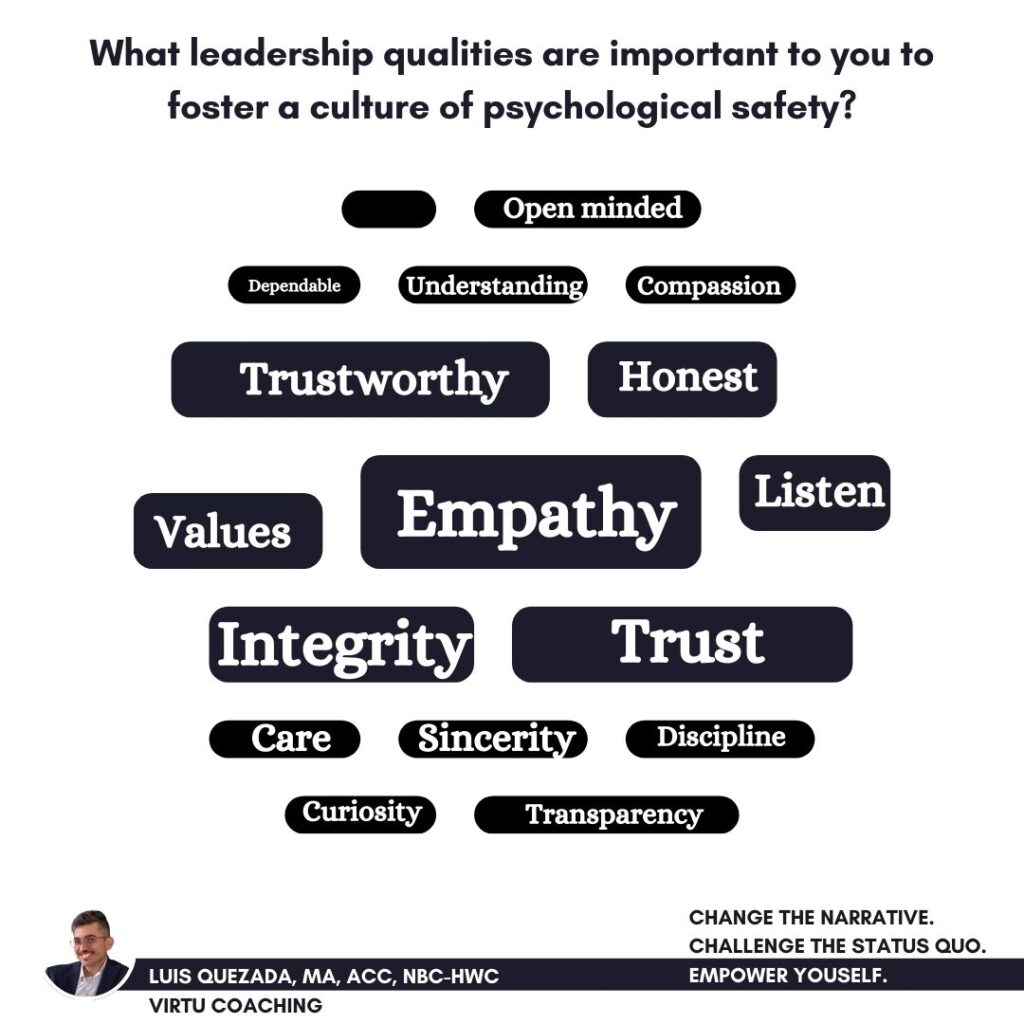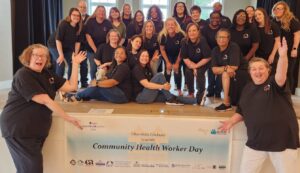It's all about creating a workplace where individuals feel safe to be themselves, share ideas, and take risks without fear.
Have you ever...
- Known the answer to a problem but felt afraid to say anything?
- Found yourself in hot water for challenging “the way things are done”?
- Been ridiculed in front of others?
- Held back asking a question so as to not look silly?
- Had someone make you feel like you don’t belong?
- Had input unfairly dismissed, or ridiculed?
- Know of better ways of doing things, but been afraid of the consequences of failure to take risks?
How did that make you feel?
What are the most important qualities that leaders bring to the table?
Self-awareness
Emotional intelligence
Vulnerability
Active listening
Empathy and compassion
Humility
Open-mindedness
Positive communication
95% of people think they're self-aware, but only 10-15% of people have high levels of self-awareness
(Tasha Eurich, 2018)
Fostering Psych Safety
Open dialogue among heart-centered professionals has the power to transform challenges into opportunities, creating a stronger and more resilient future for the organization.
Authentic conversations have a profound impact on our well-being, fostering a sense of belonging and purpose. When individuals feel heard and valued, their creativity and passion flourish, driving innovation and growth.
In organizations where open dialogue thrives, ideas become catalysts for meaningful change, extending far beyond the original context and resonating throughout communities. A single shared experience can ignite a ripple effect, sparking solutions that make a lasting impact.
This is why I want to talk to your organization about psychological safety.
Invite me to speak during your next team meeting!
Systemic Challenges: When organizations ask their staff to show up as their full-selves, we are not only asking them to share about their favorite team or ‘how was their weekend.’ We ask them to show up with their beliefs, ideas, and values that can differ from one another. And in this, we must come together to collectively make positive change.
Explore Our Coaching Program:
Core leadership development for collaboration, emotional intelligence, and psychological safety.
- We assess business priorities: For example, are we addressing innovation, culture change, wellbeing or engagement?
- Skills analysis: What are the leadership competencies desired for your teams?
- Assessment: Administer the EQ.i 2.0/360 Emotional Intelligence as benchmark and opportunity for growth.
Program Overview
Ideal project team size and role:
- 3 – 8 core team leaders and managers
- Across functions and departments
Completion total per employee:
- 9 individual 1hr Professional Development
- 4 group coaching sessions
- 1 EQ.i assessment and debrief
Return of investment (ROI):
- The International Coaching Federation projects a median return of 7x’s the initial investment from reduced turnover and absenteeism, and increased engagement, performance, and productivity from professional coaching alone.
Take it from our most recent workshop at LogistiQ, A Division of Lewco


Wednesday August 28th 2024 LogistiQ hosted a leadership development workshop.
Topic: Psychological Safety
Presenter: Luis Quezada, Virtu Coaching

Thursday, June 6th 2024 Community Health Access Project (CHAP) hosted a celebration of Community Health Workers as a part of a larger statewide recognition of CHW Day.
Topic: The intersection of psychological safety and emotional intelligence in case management and health professionals
Presenter: Luis Quezada, Virtu Coaching
Take it from our workshop:
Community Health Workers and their leadership teams share that psych safety is knowing you are...

Without,
it costs your team...
75% of employees report that their manager is the most significant factor in their job satisfaction
(Gallup, 2020)
86% of employees and managers cite lack of effective communication as the primary cause of workplace failures
(Source: Salesforce) 75% of employees report that their work is impacted by poor communication
(Source: SHRM) 40% of employees do not feel comfortable sharing their ideas and opinions
(Source: Gartner) Leaders' behavior accounts for 50-70% of the variance in employee engagement
(Gallup, 2020)
Leaders who model healthy behaviors see a 55% increase in employee well-being
(Harvard Business Review, 2019)
